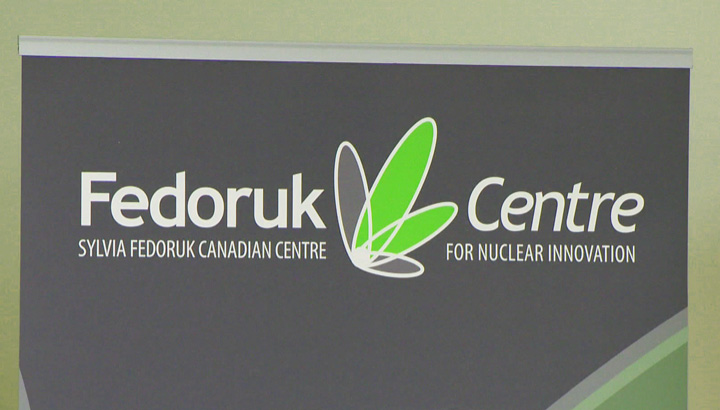A facility for nuclear innovation at the University of Saskatchewan is receiving a big funding boost from the federal government.

The Fedoruk Centre is getting $2.2 million to renovate and equip its innovation wing of the Saskatchewan Centre for Cyclotron Sciences.
The new wing is expected to create at least 50 new jobs and attract around $500,000 worth of business in research and development by 2021.
It will house specialized laboratories which will allow researchers to develop new drugs containing medical isotopes, used to detect and treat cancers and other diseases.
John Root, the executive director of the Fedoruk Centre, said scientists at the university are already on the cutting edge and the investment will expand their research.
“This investment enables Saskatchewan researchers and students to create new nuclear imaging agents and prove their effectiveness in living plants or animals, to advance agriculture technologies, and to treat diseases such as cancer, Alzheimer’s, Parkinson’s, and heart disease,” Root said.
Federal Public Safety Minister Ralph Goodale said the government is investing in more than just jobs.

Get breaking National news
“For over 60 years, Saskatchewan has been home to pioneers in nuclear medicine and technology that have made us renowned the world over,” Goodale said.
“This place is a success story and it’s contributing to health and well-being for the entire world that’s why we are investing in it.”
WATCH BELOW: From 2014 – University of Saskatchewan celebrates cyclotron completion
The new, first-of-its-kind imaging lab will also help advance agricultural sciences.
Researchers will be able to use radioisotopes to better understand the flow of nutrients in plants and soil bacteria in order to improve crop productivity.


Comments